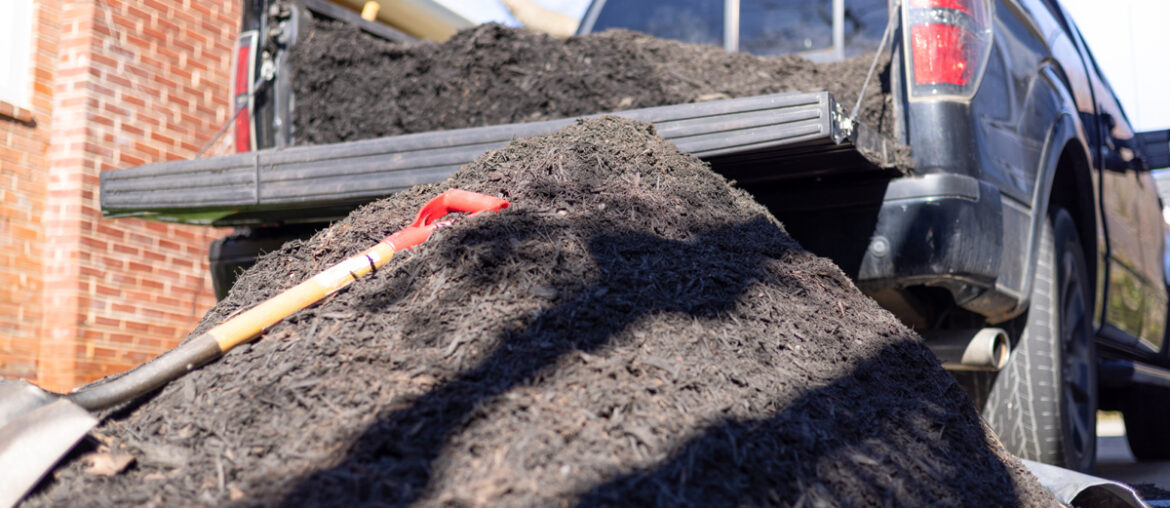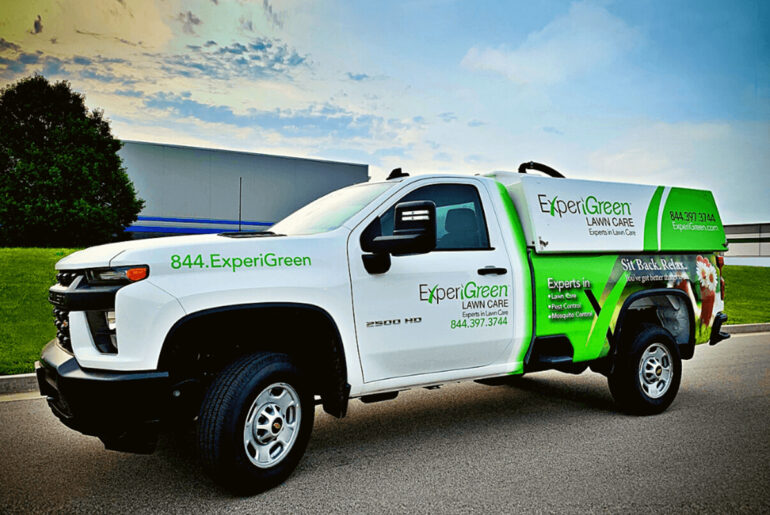When it comes to running a successful lawn and landscaping business, having the right equipment is crucial. One of the most important pieces of equipment for any lawn care business is the truck setup. A well-equipped truck can make all the difference in being able to efficiently and effectively provide top-notch services to clients.
In this article, we will explore some of the top lawn care truck setups that are essential for lawn and landscaping businesses. From trailers and landscape dump trucks to construction truck bed accessories, we will cover everything you need to know to set up your truck for success.
Landscaping Truck Setup Essentials
For landscaping businesses that require more heavy-duty equipment and tools, a well-equipped, efficient landscaping truck setup is essential. Here are some key features to consider when setting up your landscaping truck:
1. Utility Bed or Flatbed: A utility bed or flatbed is a great option for landscape trucks as it provides ample space for larger equipment such as mowers, trimmers, and backpack blowers. It also allows for easy access to tools and equipment, making it more efficient to load and unload.
2. Toolboxes: Toolboxes are essential for storing smaller tools and equipment, such as hand tools, pruners, and gloves. Having truck boxes and a toolbox with compartments can help keep your tools organized and easily accessible when needed.
3. Racks and Ramps: Racks for ladders, trimmer racks & spool racks, and ramps for loading heavy equipment such as mowers or wheelbarrows are also important features to consider for a landscaping truck setup. Racks can help keep ladders secure during transport, while ramps make it easier to load and unload heavy equipment.
4. Trailer Hitch: If you need to transport larger equipment or materials, such as mulch or rocks, having a trailer hitch installed on your truck can be extremely beneficial. This allows you to easily attach a trailer for hauling larger items, increasing the versatility of your truck setup.
Lawn Care Truck Setup Essentials
For lawn care businesses that primarily focus on mowing, trimming, and maintenance services, a slightly different pickup truck setup may be more suitable. Here are some key features to consider for setting up your lawn care truck:
1. Truck Bed Storage: Utilizing the landscape truck bed in your crew cab for storage is essential for landscape business. Installing shelves, bins, or containers in the aluminum bed can help keep tools and equipment organized and easily accessible. Consider investing in a truck bed tool organizer or toolbox to keep smaller items secure.
2. Trailer: If you have larger equipment, such as ride-on mowers or aerators, having a trailer attached to your truck can be beneficial for transporting these items to job sites. A trailer with ramps or a lift gate can make loading and unloading equipment much easier. Make sure your truck can pull a trailer; avoid light-duty trucks, instead, opt for a heavy-duty model.
3. Mower Rack: A mower rack attached to the back of your truck can help secure your lawn mower during transport, preventing it from moving around or getting damaged. This is especially important if you have multiple mowers that need to be transported to different locations.
4. Truck Bed Cover: Investing in a truck bed cover can help protect your tools and equipment from the elements, as well as deter theft. A lockable cover can provide added security for valuable items stored in the truck bed. It can also hold materials like bags to collect grass clippings.
5. Organization Systems: Consider installing organization systems such as shelving units, hooks, or bins inside the truck bed to keep tools and equipment neatly arranged. This can help maximize space and efficiency, making it easier to find and access items when needed.
6. Payload Capacities:
Understanding the payload capacity of your landscaping truck is crucial for ensuring you can carry all necessary equipment and materials without exceeding safety limits. For a landscaping business with a powerful truck, the weight of tools, mowers, and other heavier equipment can add up quickly.
Start Using Lawn Care Software!
Factors to Keep in Mind When Organizing Your Landscaping Truck
When setting up your landscaping truck, there are several important considerations to keep in mind. Whether you are starting a new landscaping business or looking to optimize your current truck setup, it’s important to carefully plan and organize your equipment and tools for maximum efficiency. From selecting the right size and type of truck to designing an efficient layout and securing equipment properly, these considerations can help you streamline your operations, save time, and increase productivity. By taking the time to thoughtfully set up your landscape truck, you can ensure that everything is easily accessible, safely stored, and ready for use whenever and wherever you need it.
Importance of landscape truck branding and signage
Truck branding and signage for landscaping businesses offer numerous benefits that can significantly boost a company’s visibility and recognition. By utilizing this marketing strategy, businesses can effectively transform their vehicles into mobile billboards, reaching potential customers wherever their work takes them.
One of the key advantages of truck branding is increased brand visibility. With well-designed signage, a landscaping business logo, name, and contact information can be prominently displayed on the trucks. As these vehicles travel around town, they become moving advertisements, attracting attention from a wide audience. This increased visibility not only helps build brand recognition but also creates a sense of trust and credibility among potential customers.
Landscape truck cleaning and upkeep
Truck cleaning and maintenance are crucial aspects of maintaining professionalism and efficiency for landscaping businesses. Regular cleaning of the interior and exterior of the truck not only reflects positively on the overall image of the business but also ensures easy accessibility of tools and equipment.
The appearance of the trucks used by a landscaping company directly impacts the customer’s perception of professionalism. A clean and well-maintained truck sends a message that the company takes pride in its work and pays attention to detail. On the other hand, a dirty and neglected truck can create doubts about the quality of service provided. Therefore, investing time and effort into regular truck cleaning helps to establish a professional and trustworthy reputation, which is vital for customer acquisition and retention.
Safety
In order to enhance safety in a landscaping operation, it is crucial to implement tie-downs, straps, and bed covers for equipment stability during transit.
Tie-downs and straps serve as a means of securing equipment to the landscape truck body, preventing any movement or shifting during transportation. This prevents potentially hazardous situations such as equipment falling off the vehicle or getting damaged due to constant movement. Bed covers provide an added layer of protection by covering the equipment entirely and shielding it from external factors such as weather conditions or road debris.
Open vs. Enclosed Landscaping Trailer
When it comes to choosing a landscaping trailer for your business or personal use, one important decision to make is whether to opt for an open or an enclosed trailer. While both options have their benefits, it ultimately depends on your specific needs and preferences. In this article, we will explore the key advantages and disadvantages of open and enclosed landscaping trailers, helping you make an informed decision that best suits your requirements.
Open Trailer
Open trailers are commonly used for landscaping purposes due to their practicality and ease of use. However, they come with both advantages and disadvantages.
One of the main advantages of using an open trailer for landscaping is the easy accessibility it provides. Open trailers typically have a low deck height, allowing for effortless loading and unloading of heavy equipment and supplies. This can save valuable time and effort for landscapers who need to frequently move equipment from one location to another.
Closed Trailer
Using a closed trailer for landscaping offers several advantages, primarily centered around protection and security. One key advantage is the added protection from weather conditions. Closed trailers provide a sheltered space, ensuring that landscaping tools, equipment, and supplies are safe from rain, snow, and extreme temperatures. This helps to prolong the lifespan of the materials and prevent any potential damage.
Landscaping Trailer/Truck vs. Box Truck
When it comes to choosing commercial vehicles for your landscaping business, two popular options to consider are a landscaping trailer/truck or a box truck. Each option has its own set of advantages and disadvantages, depending on your specific needs and preferences. In this article, we will explore the differences between these two vehicles in terms of transportation capacity, versatility, cost, and mobility. By understanding the pros and cons of each option, you can make an informed decision that best suits your landscaping business. So, whether you opt for a landscaping trailer/truck or a box truck, read on to discover which vehicle is the right fit for your landscaping needs.
Box Truck
Using a box truck for landscaping purposes offers several advantages and disadvantages. One significant advantage of utilizing a box truck is the enhanced security it provides for equipment. A box truck typically features a fully enclosed and lockable compartment, ensuring that tools like toolboxes and machinery are protected from theft and damage. This added security can be particularly beneficial when transporting expensive landscaping equipment to different job sites.
Truck/Trailer
A reliable truck/trailer combination offers numerous advantages for transporting equipment, particularly in terms of flexibility and versatility. Firstly, the combination allows for easy customization and adjustment depending on the specific equipment being transported and how rough terrain is. The trailer, or dump trailer can be modified or swapped out to accommodate different sizes, shapes, and weights of equipment, making it highly flexible for a wide variety of transport needs.
Moreover, this combination offers the advantage of being able to transport multiple pieces of equipment simultaneously. With a truck/trailer combination, it is possible to transport different types of equipment in separate compartments within the trailer, managing and segregating components efficiently. This versatility can significantly reduce the number of trips needed, saving time and resources for the transportation process.
Start Using Lawn Routing Software
In addition to choosing the right truck setup for your landscaping business, utilizing lawn care routing software like RouteManager can also greatly benefit your operation. Routing software helps optimize routes for efficiency, saving time and money on fuel costs. By inputting job locations, equipment needs, and other variables into the software, you can create the most efficient route to complete your landscaping jobs.
Benefits of Using RouteManager
RouteManager is lawncare routing software that helps lawn and landscaping truck drivers with routing and scheduling. Some of the key advantages of using routing software include:
1. Advanced Route Planning: Utilizes advanced algorithms to create optimized truck driving routes that take into account factors such as traffic patterns, road conditions, and customer preferences. This ensures that truck drivers are taking the most efficient routes possible, saving time and fuel economy.
2. Real-Time Tracking: By providing real-time tracking, businesses can monitor the progress of their drivers and ensure that jobs are being made on time. This can help improve customer satisfaction and streamline operations.
3. Reporting & Analytics: Offers comprehensive reporting and analytics tools that allow businesses to analyze job performance, track key metrics such as drive times and fuel consumption, and identify areas for improvement. This data-driven approach can help lawn and landscaping businesses make informed decisions to optimize their operations.
4. Integration with Existing Systems: Easily integrate with existing systems such as GPS devices, fleet management software, and customer relationship management (CRM) systems. This seamless integration streamlines the truck driving process and ensures that all data is centralized and accessible in one place when planning job routes.
Closing Thoughts
When it comes to choosing the right truck setup for your lawn care and landscaping business, it’s essential to consider factors such as equipment security, flexibility, and efficiency. Whether you opt for a box truck, truck/trailer combination, or another setup entirely, selecting the right option can have a significant impact on your operations. Additionally, utilizing lawn care routing software like RouteManager can further enhance the efficiency and effectiveness of your operations. By optimizing routes, tracking progress, analyzing data, and integrating with existing systems, routing software can help streamline your truck driving process and improve overall business performance. Consider incorporating these tools and strategies into your lawn care and landscaping business to maximize productivity and success. Ready to grow your business? Book a demo today!




